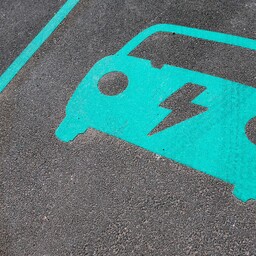2022. aastal vastu võetud
energiatõhususe direktiiv
kohustab ettevõtjaid
arendama laadimistaristut
. Direktiiv on osa FIT55 kliimapaketist. 2018. aastal lisati direktiivi
kaablikanalisatsiooni ja laadimistaristu väljaarendamise nõue
. Valitsus menetles direktiivi kiiresti ja
ettevõtjatel polnud aega dokumente hoolikalt läbi vaadata
.
energiatõhususe direktiiv
Tõlge fraasile: energiatõhususe direktiiv
EN
energy efficiency directive
arendama laadimistaristut
Tõlge fraasile: arendama laadimistaristut
EN
develop charging infrastructure
kaablikanalisatsiooni ja laadimistaristu väljaarendamise nõue
Tõlge fraasile: kaablikanalisatsiooni ja laadimistaristu väljaarendamise nõue
EN
requirement to develop cable infrastructure and charging infrastructure
ettevõtjatel polnud aega dokumente hoolikalt läbi vaadata
Tõlge fraasile: ettevõtjatel polnud aega dokumente hoolikalt läbi vaadata
EN
businesses did not have time to carefully review the documents
Isamaa esimees Urmas Reinsalu ütles, et
Euroopa Komisjoni mõjuanalüüs
põhines valedel andmetel. Ta soovitas teha uue analüüsi, mis hindaks Eesti vajadusi täpsemalt. Praegu puudub
objektiivne hinnang
Euroopa Liidu kohustustele.
Euroopa Komisjoni mõjuanalüüs
Tõlge fraasile: Euroopa Komisjoni mõjuanalüüs
EN
European Commission's impact analysis
objektiivne hinnang
Tõlge fraasile: objektiivne hinnang
EN
objective assessment
Eesti 200 liige Peeter Tali ütles, et ettevõtjad pidid varem oma arvamust avaldama. Ametnikud saavad otsuste tegemisel info ettevõtjatest. Tali märkas, et ettevõtjate mured ei kajastunud
kaasamistabel
is.
kaasamistabel
Tõlge fraasile: kaasamistabel
EN
inclusion table
Endine riigikogu majanduskomisjoni esimees Kristen Michal ütles, et direktiivi nõuded on ülepaisutatud. Ta soovitas üle vaadata, mis on Eesti ettevõtjatele ja tarbijatele jõukohane. Igale kauplusse ei ole vaja nii palju laadimiskohti.
Nüüd on mitu võimalust: edasi lükata direktiivi rakendamine, leida siseriiklik lahendus või pöörata direktiiv tagasi. Peeter Tali ütles, et
direktiivi tagasipööramine
on võimalik, kuid keeruline. Selleks on vaja
15 liikmesriigi ja üle 65% EL-i elanikkonna toetus
t.
direktiivi tagasipööramine
Tõlge fraasile: direktiivi tagasipööramine
EN
reversal of the directive
15 liikmesriigi ja üle 65% EL-i elanikkonna toetus
Tõlge fraasile: 15 liikmesriigi ja üle 65% EL-i elanikkonna toetus
EN
support from 15 member states and over 65% of the EU population
Urmas Reinsalu ütles, et praegune olukord näitab, kuidas otsuseid tehakse liiga kiiresti. Ta kritiseeris plaanisid
paigaldada laadimiskohti
poodide parkimisplatsidesse. Reinsalu arvates ei peaks valitsus seadma liiga kõrgeid kliimaeesmärke.
paigaldada laadimiskohti
Tõlge fraasile: paigaldada laadimiskohti
EN
install charging points
The energy efficiency directive adopted in 2022 obliges entrepreneurs to develop charging infrastructure. The directive is part of the FIT55 climate package. In 2018, the directive was supplemented with a requirement for the development of cable ducts and charging infrastructure. The government processed the directive quickly, and entrepreneurs did not have time to carefully review the documents.
The chairman of Isamaa, Urmas Reinsalu, said that the European Commission's impact analysis was based on incorrect data. He recommended conducting a new analysis that would assess Estonia's needs more accurately. Currently, there is no objective assessment of the European Union's obligations.
Eesti 200 member Peeter Tali said that entrepreneurs should have expressed their opinions earlier. Officials receive information from entrepreneurs when making decisions. Tali noted that the concerns of entrepreneurs were not reflected in the engagement table.
Former chairman of the Riigikogu Economic Affairs Committee Kristen Michal said that the directive's requirements are exaggerated. He recommended reviewing what is reasonable for Estonian entrepreneurs and consumers. Not every store needs so many charging points.
Now there are several options: postpone the implementation of the directive, find a national solution, or return the directive. Peeter Tali said that returning the directive is possible but difficult. It requires the support of 15 member states and over 65% of the EU population.
Urmas Reinsalu said that the current situation shows how decisions are made too quickly. He criticized plans to install charging points in store parking lots. In Reinsalu's opinion, the government should not set overly high climate goals.

